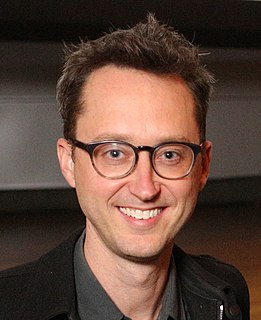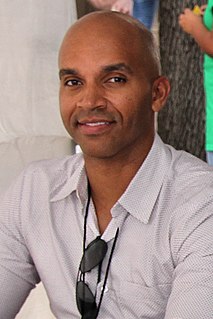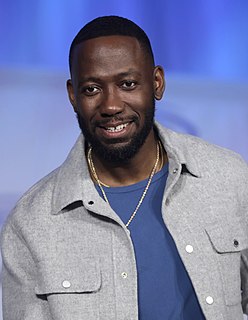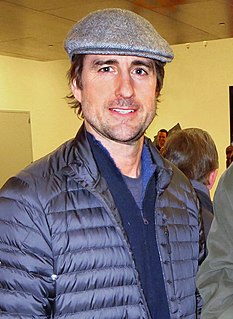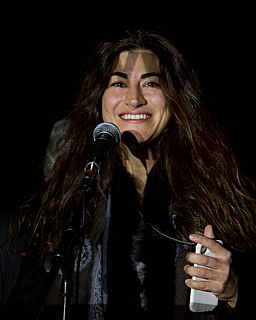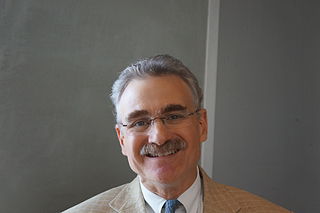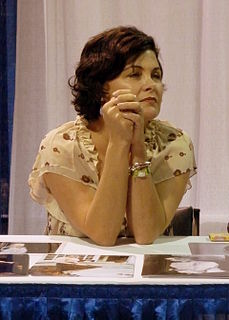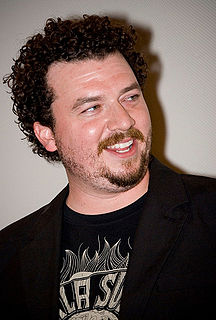A Quote by Matthew Porterfield
I like being connected to young people, or younger people who are trying to figure out the language of film, bringing theorists from the dawn of the art in the 20th century. There is a way you find a synthesis. You read texts by the Soviets who are discussing montage, and you have students figuring out how to put scenes together and tell stories visually. The theory becomes relevant in daily practice. It's free labor, which is pretty cool too. I think we all learn from each other and benefit from the collaborations.
Quote Topics
Art
Becomes
Being
Benefit
Bringing
Century
Connected
Cool
Daily
Dawn
Discussing
Each
Figure
Figuring
Film
Find
Free
How
Labor
Language
Learn
Like
Other
Out
People
Practice
Pretty
Put
Read
Relevant
Scenes
Stories
Students
Synthesis
Tell
Texts
Theorists
Theory
Think
Together
Too
Trying
Way
Which
Young
Young People
Younger
Younger People
Related Quotes
I applied [to film school] figuring, "I need to find some structure for myself. I need to find a way to figure out what kind of filmmaker I want to be." And that is what film school provides you with. It'll teach you the basics of how a production works and the technical side of how to put everything together, but you could also learn that by working on film sets.
What does it matter, if we tell the same old stories? ...Stories tell us who we are. What we’re capable of. When we go out looking for stories we are, I think, in many ways going in search of ourselves, trying to find understanding of our lives, and the people around us. Stories, and language tell us what’s important.
Much of the message that I try to put across to students is that they have to figure out what they really like to do and find a way to do that as an adult for their jobs. A lot of people have jobs they don't like, and it makes for very unhappy people. So I tell them if you like to write, or run around, or dig in the dirt, then find a job that will allow you to do that, and you'll be happy.
Film theory has nothing to do with film. Students presumably hope to find out something about film, and all they will find out is an occult and arcane language designed only for the purpose of excluding those who have not mastered it and giving academic rewards to those who have. No one with any literacy, taste or intelligence would want to teach these courses, so the bona fide definition of people teaching them are people who are incapable of teaching anything else.
The biggest fear that everybody has is dying. Not to get too meta on you, but I think every fear that people are trying to work out is really like I'm going to die and no one is going to care, and it doesn't matter because God might not exist. That's what people are trying to figure out. I wish we all had one fear so we could think about it together and figure out a solution, but we're all doing different things.
Crucially we haven't been figuring out how to live in oneness, with the Earth & every other living thing; we have just been insanely trying to figure out how to live with each other, billions of each other, only we're not living with each other our crazy selves are living with each other, and perpetuating an epidemic of disconnection.
I think there are some people who have taken on fame in extraordinary ways, like Madonna, David Bowie, and Michael Jackson. There are other people who have taken it on in a completely different way, like Prince - who is just as famous and has achieved just as much - but is still unbelievably mysterious, which I guess Bowie managed to hold as well. There are different ways of dealing with it, and for some people I think it becomes an art form of how you put yourself out there, and for other people it's literally a way of life, it's who you are, you act like a celebrity.
As the world is getting smaller, it becomes more and more important that we learn each other's dance moves, that we meet each other, we get to know each other, we are able to figure out a way to cross borders, to understand each other, to understand people's hopes and dreams, what makes them laugh and cry.
Filmmaking materials are in the hands of more people now than ever before. I would like to think that the more people have these tools, the more people will learn how to use them, it's another argument I would argue for, personally, for art's education. Because there are kids who aren't that literate in screen language and they've got to know how people select shots, how people edit audio, how people combine things to make what they see on the screen. It would be like the 15th century or the 16th century in Germany, and somebody amends a printing press and you don't know how to read and write.
Boxing Helena was something that I think was pretty cool, but people judged it without even having seen it. It's not perfect, but I think for the story that we were trying to tell, it turned out pretty good. What it signified was really powerful to me: how society puts us in boxes one way or another.
I went to film school so I have a writing and directing background, and I think a lot of the material I'm interested in writing and getting out there is stories about anti-heroes and people you should just not ordinarily root for - trying to figure out a way of appealing to people they wouldn't normally appeal to.
